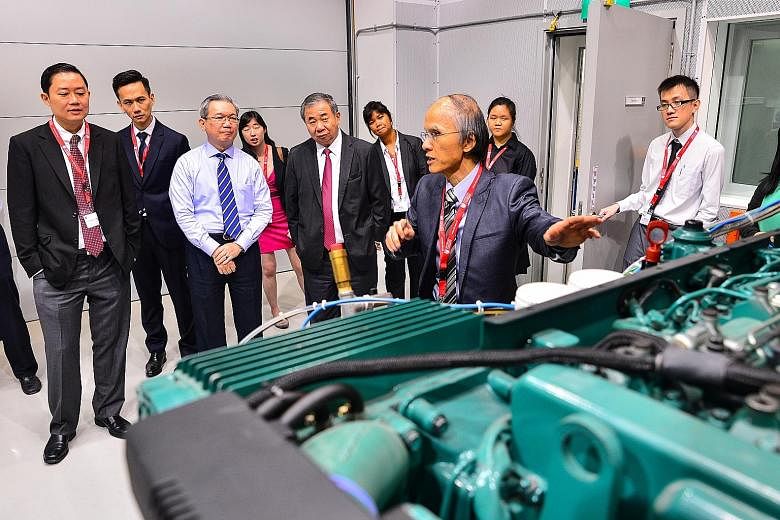A new marine research laboratory will look at how shipping companies can reduce the cost of going green.
The Sembcorp Marine Lab at Nanyang Technological University (NTU) will study ways for ships to be retrofitted and modified so they can use both diesel and clean fuel, such as liquefied natural gas (LNG) at the same time.
The new lab comes as the International Maritime Organisation, under the United Nations, is working towards imposing a global 0.5 per cent sulphur cap on marine fuel by 2020.
Sulphur dioxide emission is damaging to human health and marine fuel presently emits a maximum 3.5 per cent of the toxic gas.
It is expensive now for shipping companies to overhaul their ships to use clean fuels instead of diesel, and when installing a new engine to process clean fuel.
The lab was was officially opened yesterday by Mr Wong Weng Sun, president and chief executive officer of Sembcorp Marine.
Sembcorp Marine has contributed $10 million to fund the lab, which also aims to develop solutions in fuel emission management and energy efficiency.
One way to comply with the new regulations would be for shipping companies to mix LNG with heavy fuel oil to dilute the sulphur content of the mixed fuel, said Professor Lua Aik Chong, acting executive director of the Maritime Institute at NTU. He heads the new lab.
NTU researchers are studying the right balance of LNG and diesel in the mix to comply with the new regulations.
LNG is currently the cleanest fossil fuel. Its combustion does not emit soot, dust and fumes, and there is also almost no sulphur dioxide emission.
"This lab comes at an important time amid rising energy demands and environmental concerns about carbon emissions and global warming," said Prof Lua.
The lab is also equipped with the region's first dual-fuel marine engine, which can burn both diesel and LNG at the same time.
Funded and supported by the Economic Development Board, the engine will be used to study fuel combustion and how companies can cut costs while going green, added Professor Freddy Boey, who is the NTU Provost.


